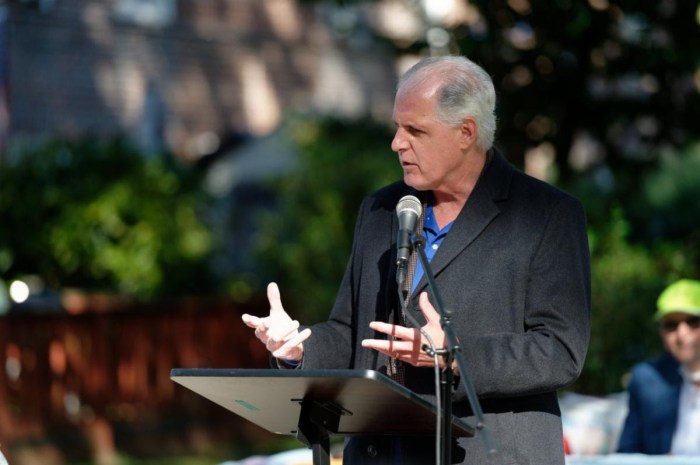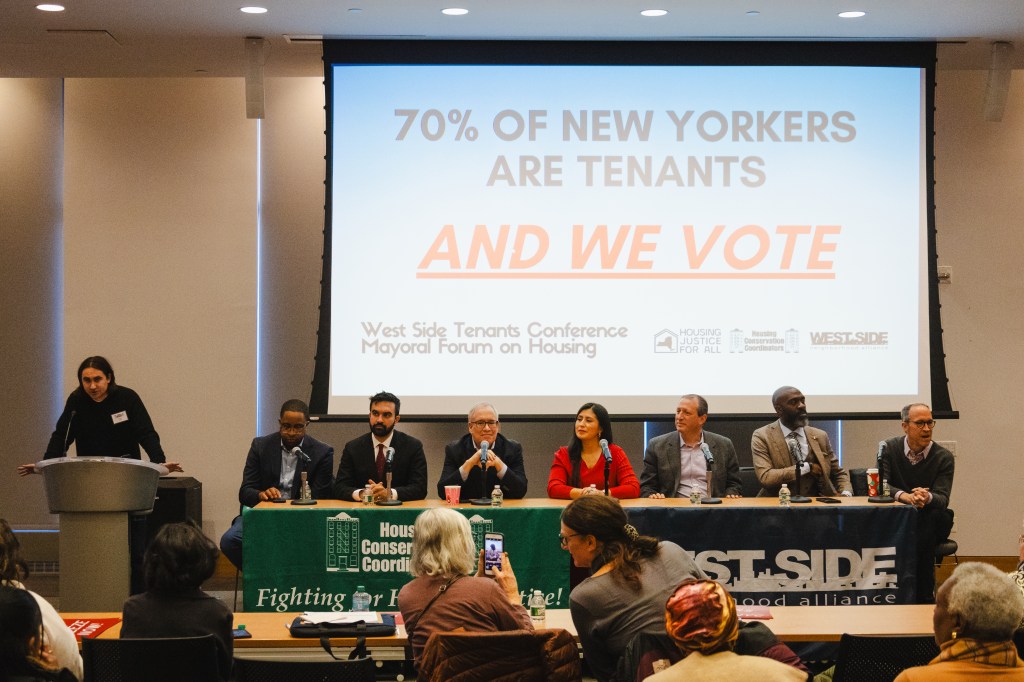By Dustin Brown
When air traffic came to a halt nationwide following the terrorist attack on the World Trade Center, the immediate financial blow to airports soon rippled across the economy of Queens and the nation.
For companies tied directly to the airlines — from freight carriers to car services — the loss of business was an expected consequence of the airport paralysis.
But for other companies in the borough with no immediate relationship to the airlines or the World Trade Center, the drop in business came almost as swiftly, forcing many to apply for disaster assistance to survive the ensuing months.
The U.S. Small Business Administration approved 144 loan applications for Queens businesses that were financially affected by the World Trade Center disaster by early December, a list of which gives only the barest glimpse of how widespread an impact Sept. 11 has had on the borough’s economy.
“Our businesses have pretty much run the gamut,” said SBA spokeswoman Colleen Hiam. “We have seen all kinds of businesses from support businesses, service businesses, retail, wholesale, manufacturing.”
CJ Auto Repair and Tire Center, which services airport ground equipment, sits directly outside JFK Airport in a manufacturing district where freight companies and other support industries dependent on airport business have been shutting their doors in the past three months.
Once the planes were grounded Sept. 11, the shop’s owner John Bonamassa lost a critical volume of business since about 95 percent of his work is tied directly to the airport.
Because so many other businesses are folding under current economic strains, his suppliers are demanding cash on delivery, so Bonamassa plans to use his $104,100 loan to restock his shop.
On the other side of Queens, Green Meadows Farm Entertainment Company derives its business from children and families who participate in a hands-on farm animal program — a venture that could hardly be more distant from the economic effects of the airports and Lower Manhattan.
But Catholic schools were ordered to cancel all field trips after Sept. 11 and owner Daniel Keyes soon found himself staring at a 45 percent drop in attendance.
“We were looking at a record fall in terms of reservations coming in,” he said. “Then Sept. 11 just completely turned that around.”
He described his $100,000 SBA loan as a “safety net” to help him cover operating costs until the business can grow strong again in the spring, which he expects will happen.
Some businesses were heavily affected by the emotional response to the Twin Towers’ collapse, which had a decided effect on how customers spent their money.
“Orders just were not coming in” immediately after Sept. 11, said Jeffrey Van Zandt, whose Long Island City company, Continental Anchor Ltd., manufactures engraved and printed products. “People were not thinking about something as trivial as reordering stationery when such a horrific tragedy had just taken place.”
The company’s presses instead were put to use printing invitations for charity events raising funds for Sept. 11 victims — a service they provided free of charge.
“Even though we were hurting, we knew there were other people hurting more,” said Ellen Van Zandt, who operates the business with her husband.
Even the prejudice against Muslims and people of Middle Eastern descent that emerged after Sept. 11 infiltrated the economy, paralyzing companies whose employees considered themselves likely targets of bias violence.
“All of the drivers, they are mostly Muslims, and they were afraid,” said Ghazi Hijazi, an owner of yellow cab company Steinway Express Management in Long Island City. “Nobody showed up for work.”
Hijazi’s company received a loan of $303,900, which he said will go to paying bills left over from the month after the World Trade Center attacks, when business was the worst.
The SBA gives loans as high as $1.5 million to companies in the federally declared disaster area surrounding the city, at an enviable 4 percent interest rate for a maximum term of 30 years.
But for any loans above $5,000 businesses are required to provide some form of collateral — frequently a house or another piece of real estate — causing many to shy away from the program out of fear they would lose everything if business failed to pick up with sufficient speed.
“If you’re losing sales volume, how are you going to be able to afford the interest on the loan per month?” asked Bob Richards, president of the Jamaica Chamber of Commerce.
But the company owners receiving assistance from the SBA are confident business will pick up.
Ellen Van Zandt, whose family business dates to 1890, recounted how the company survived World War I, the Great Depression, World War II, and all the recessions.
“We believe in America, we believe in our product, we know we do what we do better than anybody else and we really believe that we’re gonna come back,” she said.
Reach reporter Dustin Brown by e-mail at Timesledger@aol.com or call 229-0300, Ext. 154.

































